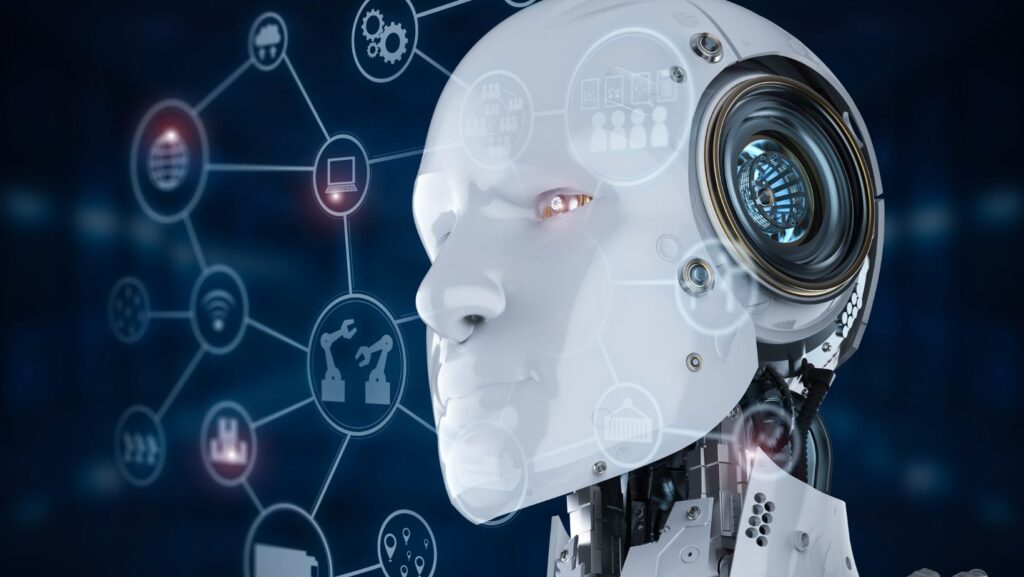Artificial intelligence (AI) is no longer confined to research labs or futuristic scenarios. It has become a central tool in business operations, shaping decision-making, customer engagement, and efficiency across industries. From predictive analytics that forecast consumer behavior to personalized experiences that increase customer satisfaction, AI is redefining how organizations create value in a competitive digital economy.
Predictive Analytics: Turning Data into Foresight
Predictive analytics is one of the most impactful applications of AI in business. By analyzing historical and real-time data, companies can anticipate trends, reduce risks, and refine their strategies.
Examples of predictive analytics in action:
- Retail: Forecasting demand to optimize inventory.
- Healthcare: Predicting patient outcomes for proactive care.
- Finance: Detecting fraud through unusual transaction patterns.
- Marketing: Anticipating which campaigns will achieve higher engagement.
For businesses, this approach minimizes uncertainty. Instead of relying on intuition alone, leaders make informed choices based on algorithm-driven forecasts.
Personalization: Crafting Unique Customer Journeys
Consumers expect more than generic messages—they want interactions that feel tailored to them. AI makes this possible by analyzing individual preferences and behaviors.
How personalization works in business:
- Recommending products based on browsing or purchase history.
- Offering dynamic pricing strategies.
- Delivering customized email and ad campaigns.
- Enhancing user interfaces with adaptive content.

Entertainment industries, such as online casinos, have embraced personalization to keep users engaged. Platforms like https://first.com/casino/paypal-casinos combine secure payments with AI-driven recommendations, offering players experiences that match their habits and preferences. This blend of trust and tailored interaction is what modern consumers increasingly expect.
Table: AI Applications Across Business Sectors
| Sector | AI Application | Business Benefit |
| Retail | Dynamic product recommendations | Higher conversion rates |
| Healthcare | Predictive diagnostics | Improved patient care |
| Finance | Fraud detection systems | Reduced financial loss |
| Marketing | Personalized campaigns | Increased customer loyalty |
| Gaming & Entertainment | Smart recommendations, chatbots | Better engagement and retention |
Enhancing Customer Support with AI
Chatbots and virtual assistants are now standard features in business. AI-powered tools can respond instantly to customer inquiries, provide 24/7 support, and reduce workload for human staff.
Key advantages of AI-driven support:
- Instant responses to common questions.
- Multilingual communication for global audiences.
- Continuous learning to improve accuracy.
- Integration with CRM systems to provide context-driven answers.
This not only reduces costs but also raises customer satisfaction by offering reliable support at any time.
AI and Business Efficiency
AI also plays a critical role behind the scenes by streamlining operations:
- Supply Chain Optimization: AI predicts demand shifts and helps logistics companies plan routes.
- Workforce Management: Smart scheduling systems align staff with business needs.
- Process Automation: Repetitive tasks are delegated to AI, freeing employees for strategic work.
These efficiencies allow businesses to reallocate resources toward innovation and customer-centric strategies.
Ethical Considerations in AI Adoption
While AI offers immense benefits, companies must also address ethical challenges. These include:
- Bias in Algorithms: Ensuring AI models are fair and inclusive.
- Data Privacy: Protecting consumer information in compliance with regulations.
- Transparency: Clearly explaining how AI-driven decisions are made.
Organizations that balance innovation with responsibility will be better positioned to build trust and long-term success.
The Future of AI in Business
Looking ahead, AI’s role in business will expand further as technologies like natural language processing, computer vision, and advanced machine learning continue to mature. Key trends expected to shape the future include:
- Broader use of AI-powered virtual reality and augmented reality.
- Increased automation of financial and legal processes.
- Personalized digital assistants capable of managing entire customer journeys.
- AI-driven insights that help businesses adapt to rapidly shifting markets.

AI is now central to how businesses operate, predict, and personalize. From predictive analytics that reduce uncertainty to personalized interactions that deepen customer relationships, artificial intelligence is reshaping industries at every level. Companies integrating AI thoughtfully—not just for efficiency, but for consumer engagement—are setting the pace for the future of commerce.



